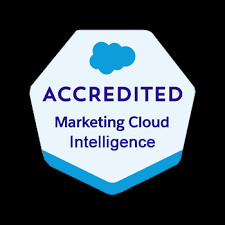Cross-Channel Marketing: What It Is and Why It Matters
What Is Cross-Channel Marketing?
Cross-channel marketing refers to a strategic approach that integrates multiple marketing channels to provide a seamless and consistent customer experience. It ensures that your message is aligned and connected across platforms, such as email, social media, websites, SMS, mobile apps, and in-store promotions, to meet customers where they are.
By leveraging data and insights, cross-channel marketing enables businesses to engage with customers more effectively, guiding them through a unified journey that feels personalized and cohesive.
Why Is Cross-Channel Marketing Important?
Today’s consumers interact with brands across numerous touchpoints. A shopper might see a social media ad, browse products on a website, receive a promotional email, and complete their purchase via a mobile app. Cross-channel marketing ensures these interactions are interconnected, creating a smoother, more satisfying experience.
Key benefits include:
- Enhanced Customer Experience: Customers value consistency. Cross-channel marketing ensures they receive relevant messages regardless of the platform.
- Better Engagement: Coordinated efforts across multiple channels increase the chances of capturing attention and driving engagement.
- Improved ROI: By delivering the right message at the right time on the right channel, cross-channel strategies reduce wasted efforts and improve conversions.
- Actionable Insights: Tracking interactions across channels provides data to refine campaigns and understand customer preferences better.
Core Components of Cross-Channel Marketing
- Unified Messaging: Consistency in tone, visuals, and messaging across all platforms is essential to reinforce your brand identity.
- Personalization: Tailor messages based on customer data to make interactions more relevant and impactful.
- Data Integration: Combine data from various channels into a single source of truth for better decision-making.
- Automation: Use marketing automation tools to schedule, coordinate, and optimize campaigns across channels.
- Measurement and Optimization: Continuously track performance metrics and refine strategies to improve outcomes.
Examples of Cross-Channel Marketing in Action
- Retail: A customer abandons their online cart, triggering a reminder email, followed by a mobile push notification offering a discount if they complete their purchase within 24 hours.
- Hospitality: A travel company combines web ads, personalized emails, and SMS reminders to guide customers through the booking process.
- Entertainment: A streaming service uses in-app notifications, social media ads, and emails to promote new content tailored to user preferences.
Best Practices for Cross-Channel Marketing
- Know Your Audience: Use segmentation to understand customer behaviors and preferences.
- Be Mobile-Friendly: Ensure content is optimized for mobile devices since many interactions happen on the go.
- Leverage AI: Use AI-powered tools to analyze data, predict behavior, and automate personalized experiences.
- Align Teams and Technology: Ensure marketing, sales, and customer service teams collaborate effectively, supported by the right tools.
- Test and Adapt: Experiment with different strategies and iterate based on performance.
Cross-Channel Marketing vs. Multi-Channel Marketing
While these terms are often used interchangeably, they are not the same.
- Multi-Channel Marketing focuses on using multiple channels to reach customers but often operates each channel independently.
- Cross-Channel Marketing ensures that all channels are connected, creating a unified customer journey.
The Future of Cross-Channel Marketing
As technology evolves, cross-channel marketing will become even more sophisticated, leveraging artificial intelligence, machine learning, and predictive analytics to deliver hyper-personalized and proactive customer experiences. Businesses that adopt this approach will stay ahead of the curve, fostering stronger customer relationships and achieving long-term success.
Whether you’re just getting started or looking to refine your strategy, cross-channel marketing is a must for businesses aiming to thrive in today’s competitive landscape.
🔔🔔 Follow us on LinkedIn 🔔🔔













